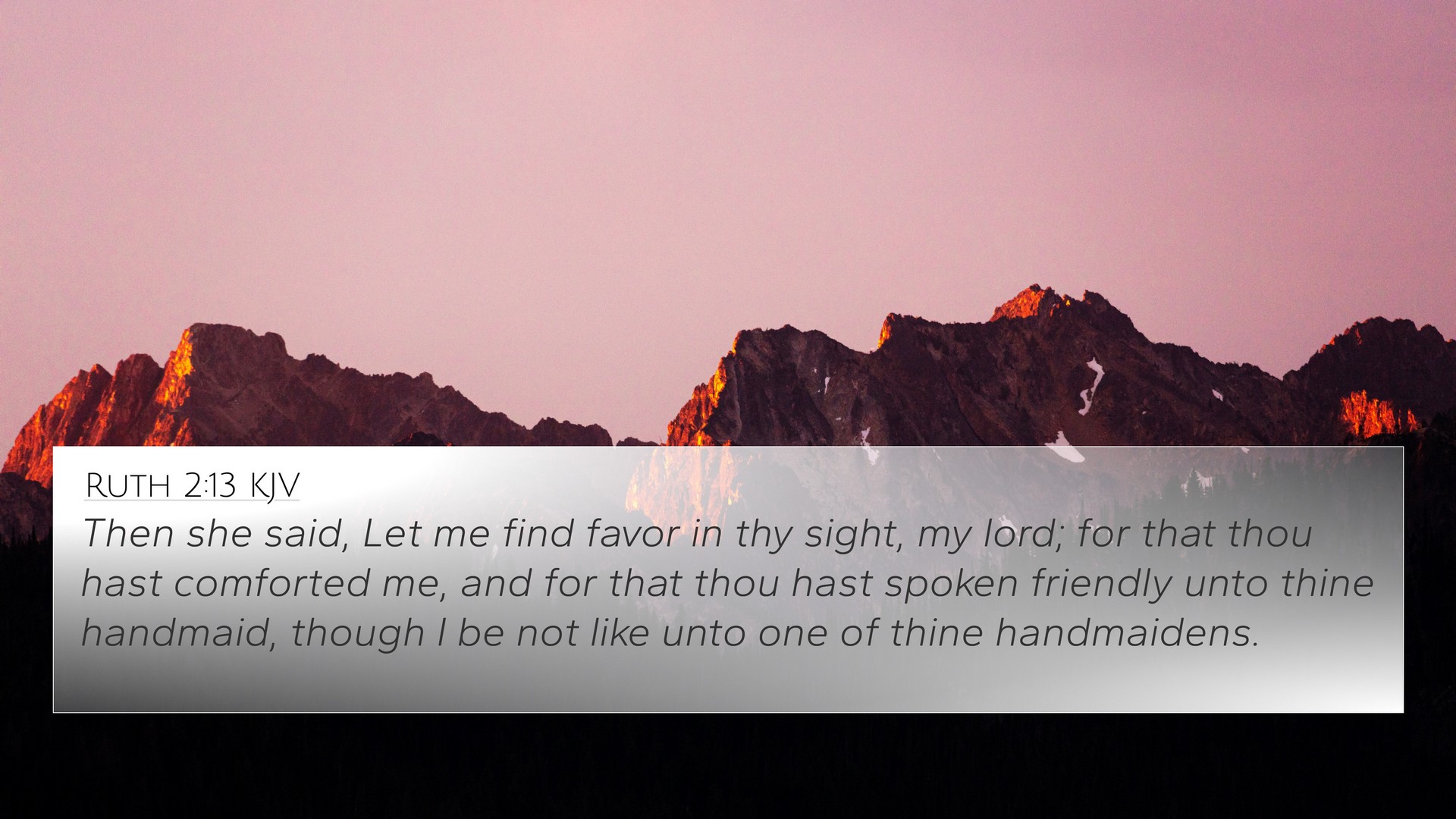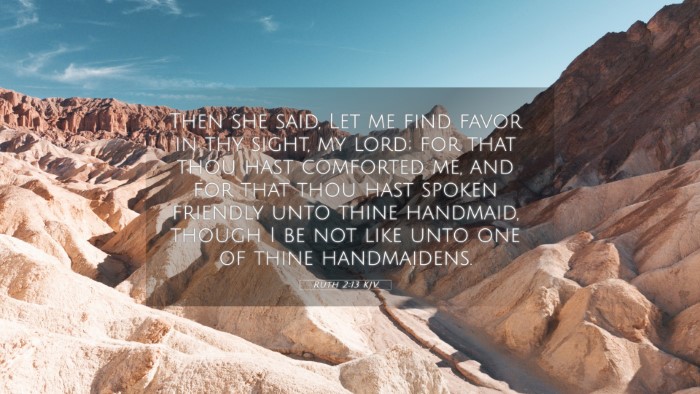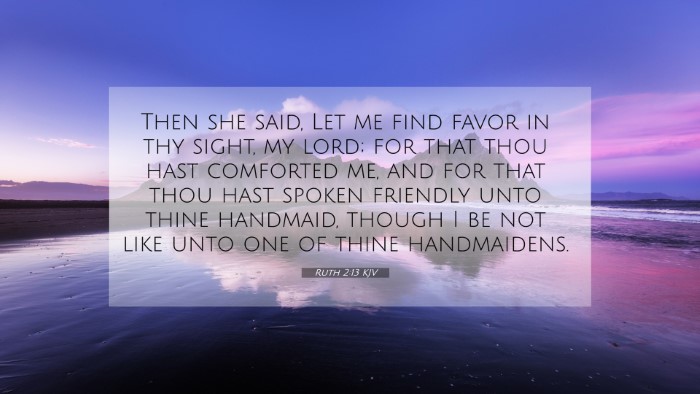Old Testament
Genesis Exodus Leviticus Numbers Deuteronomy Joshua Judges Ruth 1 Samuel 2 Samuel 1 Kings 2 Kings 1 Chronicles 2 Chronicles Ezra Nehemiah Esther Job Psalms Proverbs Ecclesiastes Song of Solomon Isaiah Jeremiah Lamentations Ezekiel Daniel Hosea Joel Amos Obadiah Jonah Micah Nahum Habakkuk Zephaniah Haggai Zechariah MalachiRuth 2:13 Similar Verses
Ruth 2:13 Cross References
Then she said, Let me find favor in thy sight, my lord; for that thou hast comforted me, and for that thou hast spoken friendly unto thine handmaid, though I be not like unto one of thine handmaidens.
Uncover the Rich Themes and Topics of This Bible Verse
Listed below are the Bible themes associated with Ruth 2:13. We invite you to explore each theme to gain deeper insights into the Scriptures.
Ruth 2:13 Cross Reference Verses
This section features a detailed cross-reference designed to enrich your understanding of the Scriptures. Below, you will find carefully selected verses that echo the themes and teachings related to Ruth 2:13 KJV. Click on any image to explore detailed analyses of related Bible verses and uncover deeper theological insights.
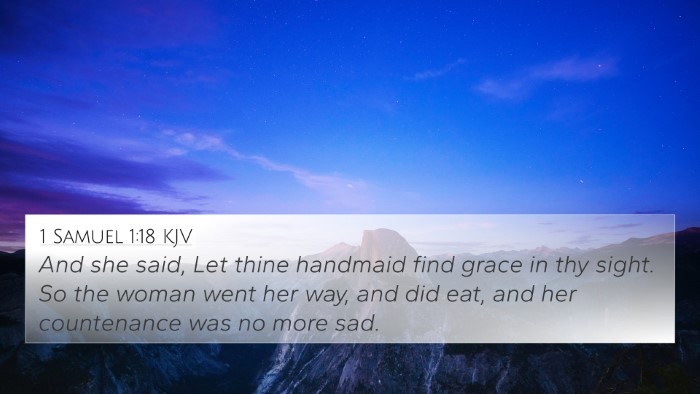
1 Samuel 1:18 (KJV) »
And she said, Let thine handmaid find grace in thy sight. So the woman went her way, and did eat, and her countenance was no more sad.
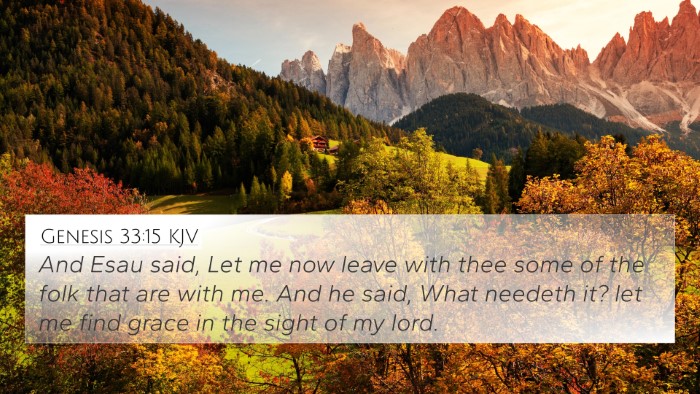
Genesis 33:15 (KJV) »
And Esau said, Let me now leave with thee some of the folk that are with me. And he said, What needeth it? let me find grace in the sight of my lord.
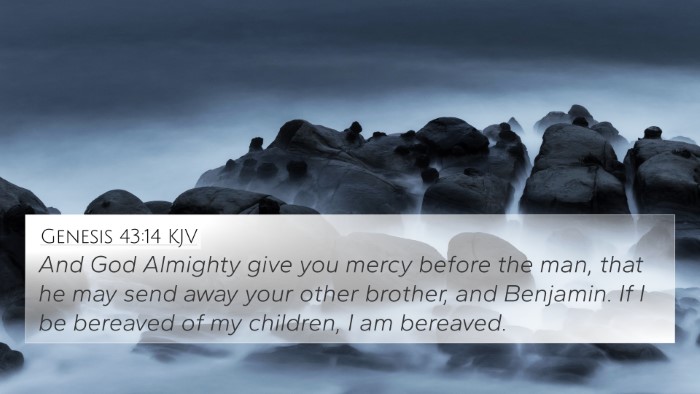
Genesis 43:14 (KJV) »
And God Almighty give you mercy before the man, that he may send away your other brother, and Benjamin. If I be bereaved of my children, I am bereaved.
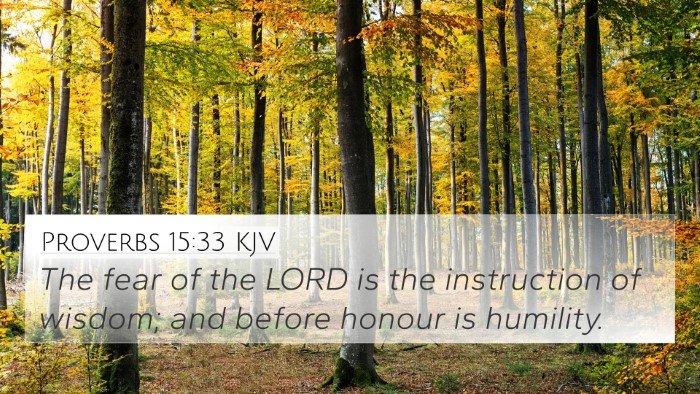
Proverbs 15:33 (KJV) »
The fear of the LORD is the instruction of wisdom; and before honour is humility.
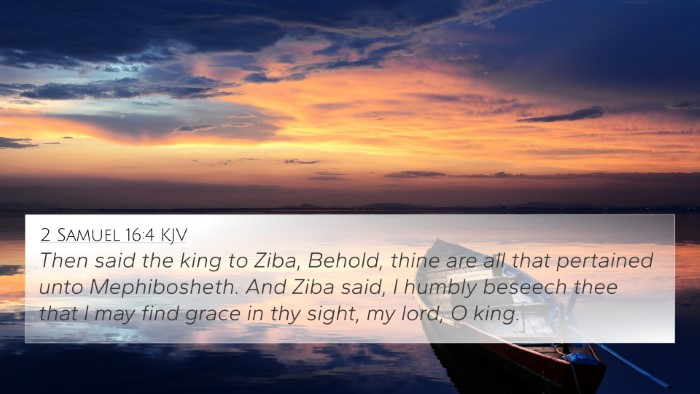
2 Samuel 16:4 (KJV) »
Then said the king to Ziba, Behold, thine are all that pertained unto Mephibosheth. And Ziba said, I humbly beseech thee that I may find grace in thy sight, my lord, O king.
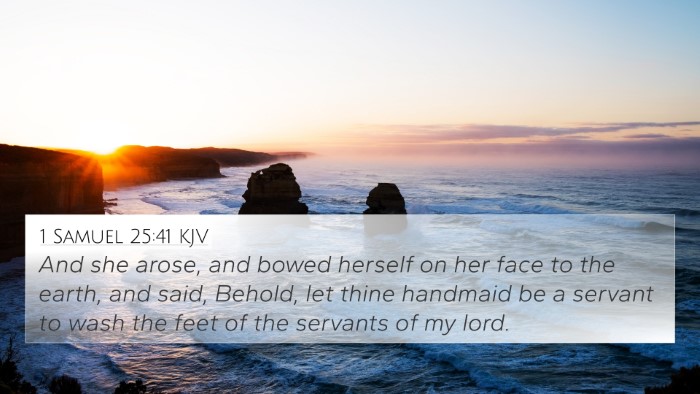
1 Samuel 25:41 (KJV) »
And she arose, and bowed herself on her face to the earth, and said, Behold, let thine handmaid be a servant to wash the feet of the servants of my lord.
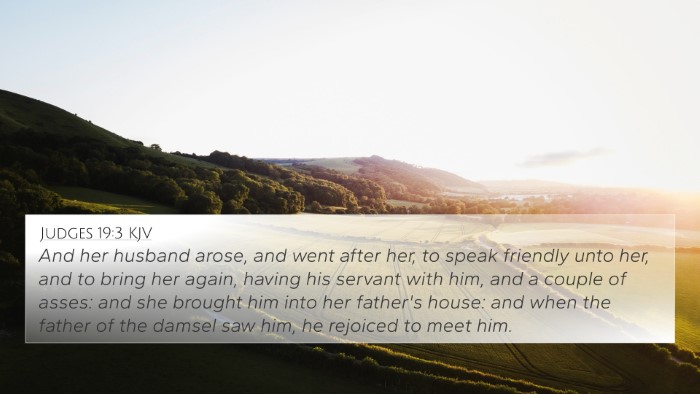
Judges 19:3 (KJV) »
And her husband arose, and went after her, to speak friendly unto her, and to bring her again, having his servant with him, and a couple of asses: and she brought him into her father's house: and when the father of the damsel saw him, he rejoiced to meet him.
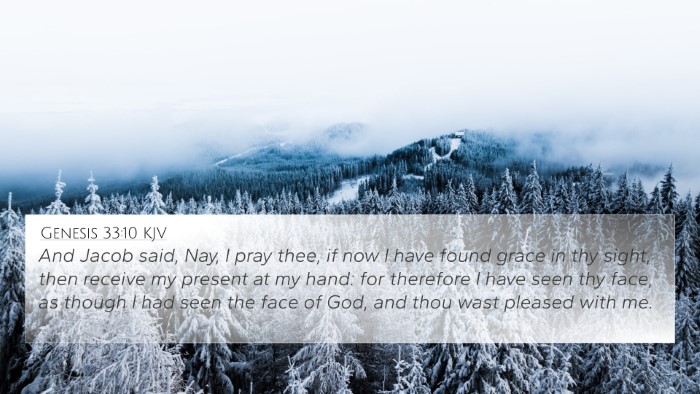
Genesis 33:10 (KJV) »
And Jacob said, Nay, I pray thee, if now I have found grace in thy sight, then receive my present at my hand: for therefore I have seen thy face, as though I had seen the face of God, and thou wast pleased with me.
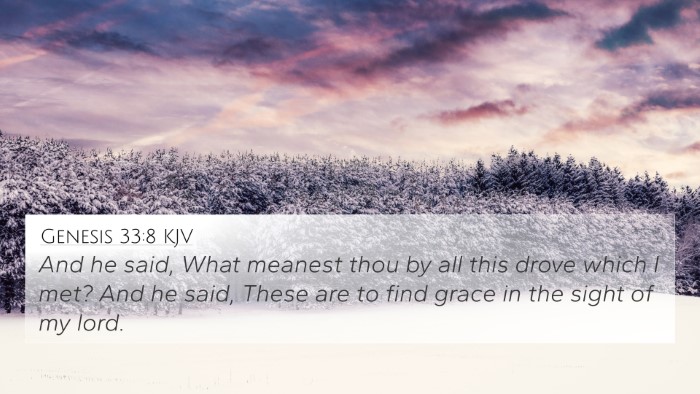
Genesis 33:8 (KJV) »
And he said, What meanest thou by all this drove which I met? And he said, These are to find grace in the sight of my lord.
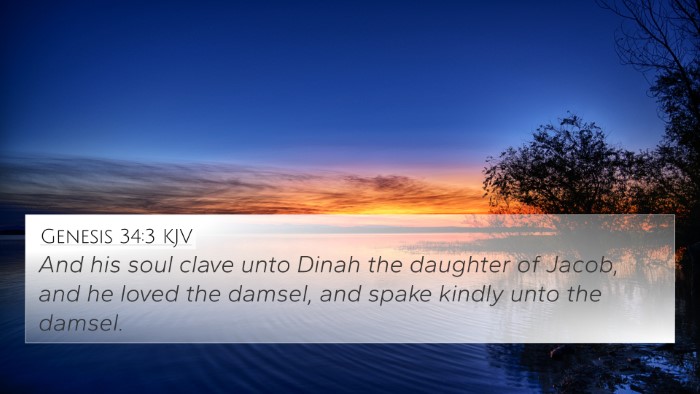
Genesis 34:3 (KJV) »
And his soul clave unto Dinah the daughter of Jacob, and he loved the damsel, and spake kindly unto the damsel.
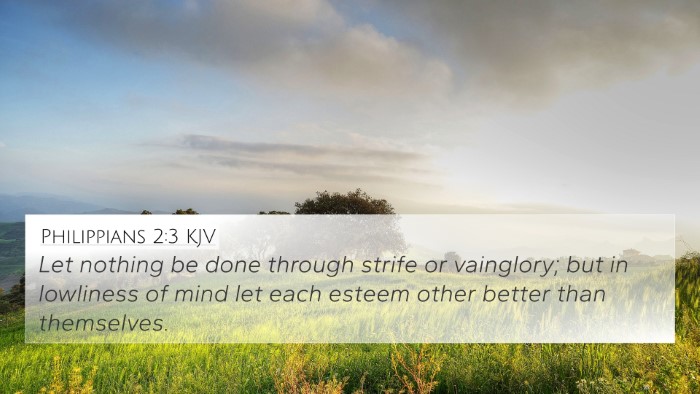
Philippians 2:3 (KJV) »
Let nothing be done through strife or vainglory; but in lowliness of mind let each esteem other better than themselves.
Ruth 2:13 Verse Analysis and Similar Verses
Understanding Ruth 2:13
Ruth 2:13 captures a moment of humility and gratitude expressed by Ruth as she interacts with Boaz, a figure of generosity in the narrative. This verse reads:
"Then she said, 'I have found favor in your sight, my lord, for you have comforted me and spoken kindly to your maidservant, though I am not like one of your maidservants.'" (Ruth 2:13, NKJV)
Verse Meaning and Insights
Contextual Background: The Book of Ruth unfolds during the time of the judges, highlighting themes of loyalty, redemption, and divine providence. Ruth, a Moabite widow, chooses to remain with her Israelite mother-in-law, Naomi, and seeks sustenance in the fields of Boaz, a wealthy relative of Naomi.
-
Matthew Henry's Commentary Insights:
Henry emphasizes Ruth's humility as she acknowledges her status as a foreigner and maidservant in contrast to Boaz's kindness. This acknowledgment illustrates Ruth's understanding of her position and her gratefulness for the grace shown to her.
-
Albert Barnes' Commentary Insights:
Barnes notes the significance of Ruth's declaration of finding favor. This reflects her direct interaction with divine favor through Boaz, who acts as a type of Christ, showcasing God's providence in the lives of the faithful.
-
Adam Clarke's Commentary Insights:
Clarke highlights the deep respect Ruth has for Boaz, recognizing his authority and benevolence. Her words serve as a tribute not only to Boaz's character but also to the broader theme of respect and relationship dynamics in Biblical narratives.
Cross-References for Ruth 2:13
This verse resonates with several other scriptural passages, linking various themes of humility, grace, and God’s providence throughout the Bible:
- Leviticus 19:10 - Providing for the poor and the foreigner.
- Psalms 146:9 - The Lord watches over the strangers.
- Proverbs 31:20 - A virtuous woman’s charity towards the needy.
- Matthew 5:5 - The meek shall inherit the earth.
- Luke 1:48 - God's regard for the humble state of His servant.
- James 4:6 - God opposes the proud but gives grace to the humble.
- 1 Peter 5:5 - Humble yourselves under God’s mighty hand.
Thematic Connections
The connections found in Ruth 2:13 extend beyond its immediate context into broader Biblical themes:
-
Grace and Favor:
Ruth’s expression of finding favor mirrors other Biblical instances where individuals receive grace despite their backgrounds, such as David before Saul (1 Samuel 16:22) and Mary before the angel Gabriel (Luke 1:30).
-
Humility:
Ruth’s humble approach foreshadows teachings found in the New Testament about the importance of humility in seeking God (Matthew 18:4).
-
Divine Providence:
This moment in Ruth's life serves as an example of how God orchestrates events in the daily lives of His people, as seen in other Biblical narratives like Joseph's story (Genesis 50:20).
Conclusion
Ruth 2:13 encapsulates profound principles of gratitude, humility, and divine grace through the character of Ruth and her relationship with Boaz. Through a careful comparative Bible verse analysis, we can see the thematic connections and cross-references enrich our understanding of this verse. They illustrate the timeless nature of God's provision for those who seek refuge in Him.
